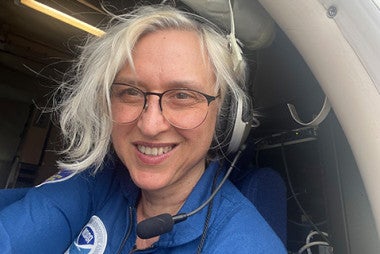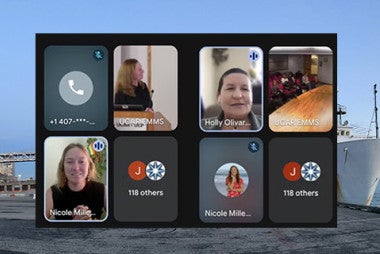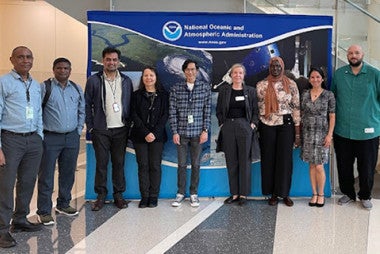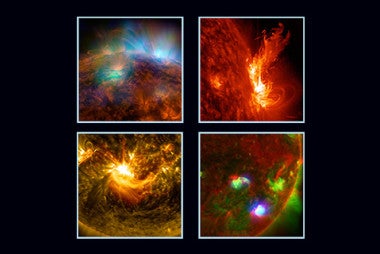CPAESS Discovery Seminar: The Impact of Assimilating GNSS-RO Observations on HAFS Tropical Cyclone Forecasts from the 2022 Atlantic Hurricane Season
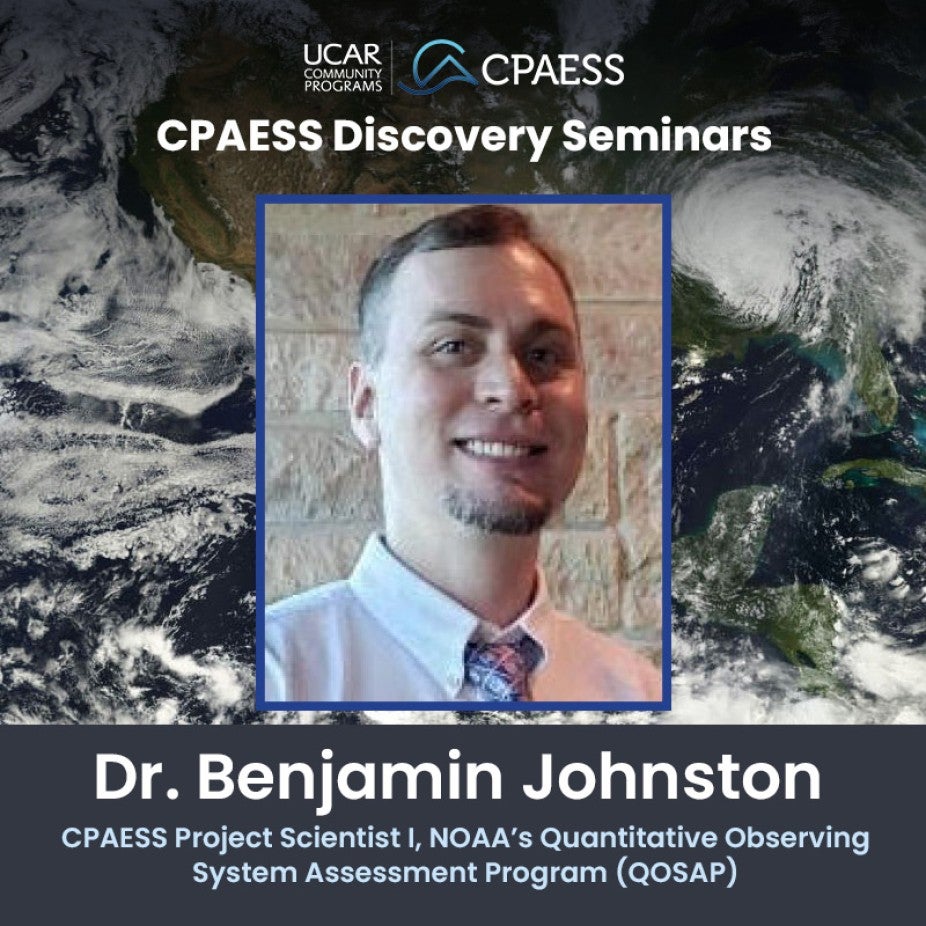
Benjamin Johnston, CPAESS Project Scientist I, NOAA Quantitative Observing System Assessment Program (QOSAP)
Presenter
Dr. Benjamin Johnston, CPAESS Project Scientist at NOAA's Quantitative Observing System Assessment Program (QOSP)
About Dr. Benjamin Johnston
Dr. Benjamin R. Johnston is a Project Scientist I within CPAESS at UCAR and has worked with NOAA's Quantitative Observing System Assessment Program since 2022. His current work focuses on conducting observing system experiments (OSEs) and observing system simulation experiments (OSSEs) within NOAA’s next-generation hurricane model, the Hurricane and Analysis Forecast System (HAFS), to evaluate the impact of various data sources on operational hurricane forecasts. His primary research interests include GNSS-RO data evaluation, remote sensing, tropical cyclones, convective processes and dynamics, and climate studies including ENSO and tropopause variability. He received his B.S. in Meteorology from California University of Pennsylvania in 2009, his M.S. in atmospheric science from the University of Maryland in 2012, and his Ph.D. in Coastal and Marine Systems Science from Texas A&M University-Corpus Christi in 2019. He completed a postdoctoral research fellowship within the COSMIC program at UCAR in 2022.
Description
Global Navigation Satellite System radio occultation (GNSS-RO) data have become an essential part of observational assimilation in numerical weather prediction (NWP) models due to their high accuracy and precision, insensitivity to clouds and precipitation, high vertical resolution, and a considerable increase in sampling density in recent years. Their impact has been demonstrated in many global models, as well as several regional models. In this study, we show the impact of assimilating GNSS-RO bending angle (BA) observations on ten tropical cyclone (TC) forecasts from the 2022 Atlantic hurricane season using the Hurricane Analysis and Forecast System (HAFS) model. Our evaluation shows that track forecasts are improved considerably (~15-20%) after assimilating RO BAs, mainly through global model forecasts as initial and boundary conditions for HAFS, and these improvements are especially evident at longer forecast lead times. A case study of Hurricane Ian, a category five hurricane which made landfall along the western Florida coast, showed greatly improved landfall prediction three-to-five days before landfall after assimilating RO BAs due to improved forecasts of the synoptic-scale steering flow over the Gulf of Mexico. Further study after adding many additional commercial RO profiles for assimilation through the Radio Occultation Modeling EXperiment (ROMEX) showed 25-30% improvements to TC intensity forecasts at longer lead times. For example, Hurricane Ian showed HAFS accurately forecasting maximum wind speeds, including its rapid intensification, two-to-four days in advance due to improved representation of mid-level moisture in the vicinity of Ian. These results emphasize the benefits that RO can provide to both TC track and intensity forecasts.
The talk was recorded and published on the CPAESS YouTube Channel.
Questions? Contact Dawn Mullally
